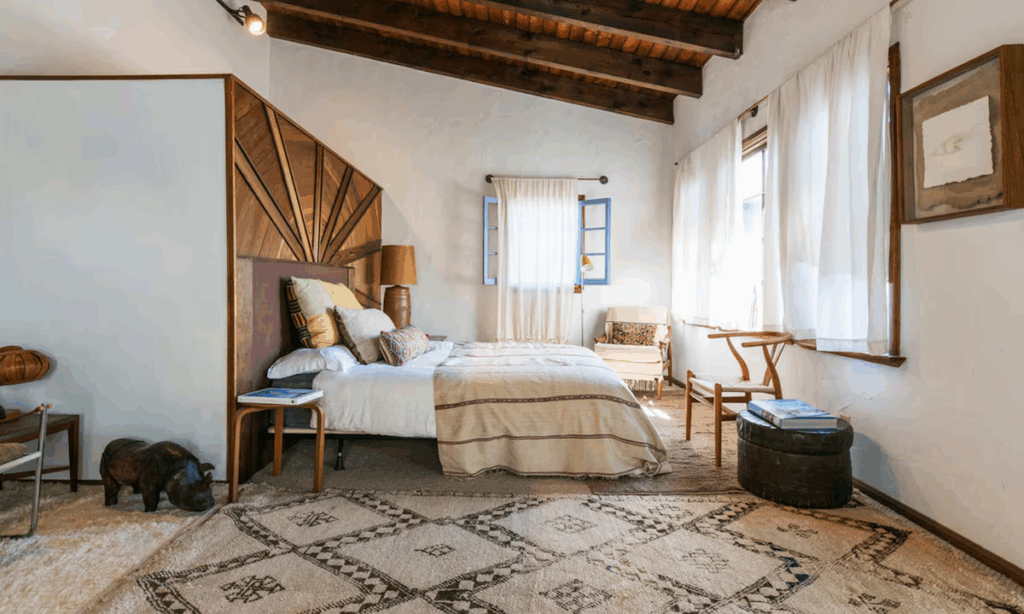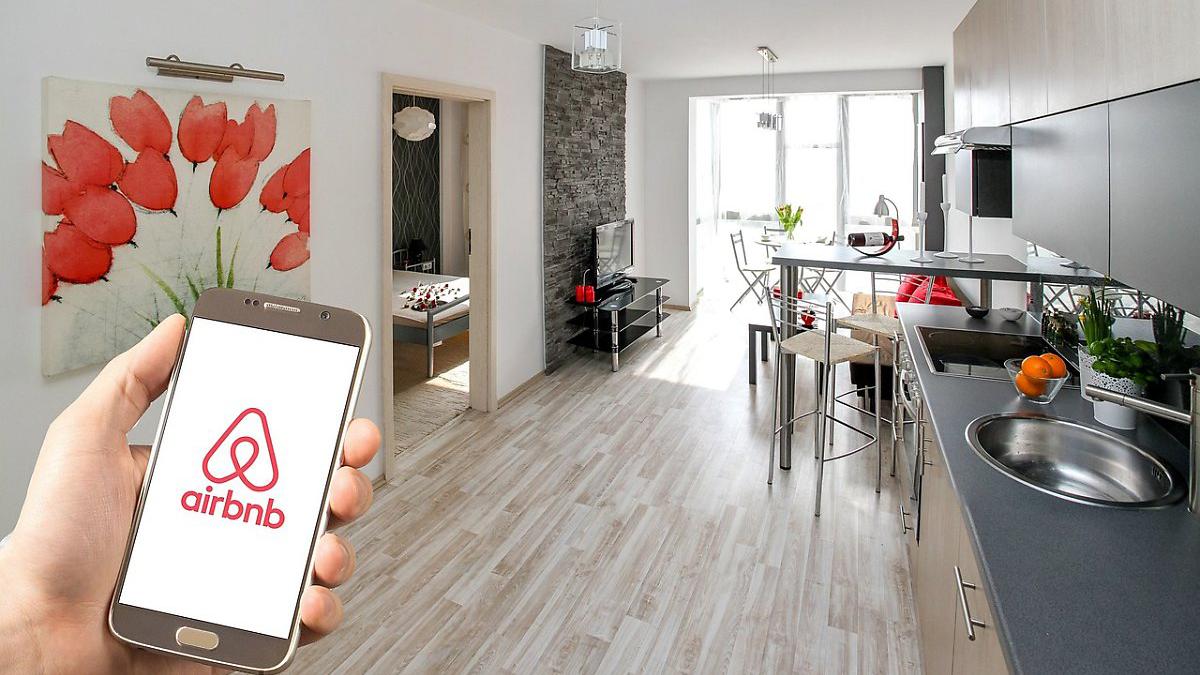While Airbnb is often associated with short-term stays for tourists, it also offers long-term stay options—allowing guests to stay for a week to several months at a time. For foreigners looking to reside in Korea temporarily or for a medium-term period, Airbnb can be a preferred alternative to hotels or studio apartments. The reasons are clear: it comes fully furnished with appliances, allows for easier communication with hosts compared to traditional landlords, and offers a wider range of locations.
In this article, we’ve compiled essential tips to help you save money and avoid conflicts during your long-term Airbnb stay.
Discounts on Long-Term Stays
Weekly and Monthly Discounts
Airbnb allows hosts to set discounts for weekly or monthly bookings. For example, even if the daily rate is 50,000 KRW, you may receive up to a 30% discount for a monthly stay. You can find these offers under the “Long-term stay” filter or by selecting the “Monthly Stay” option on a listing’s detail page.
In many cases, a full-month booking can be cheaper than reserving multiple short stays. From a host’s perspective, securing a longer-term guest provides more stable income, so it’s not uncommon for them to offer deeper discounts.
Negotiations Possible?
Beyond the discounts listed on the platform, long-term guests can reach out to hosts via message to ask, “I’m planning to stay for over two months—would you be open to offering a further discount?” If it’s the off-season and the property is available, some hosts might accept. However, for your safety, all payments must be made through Airbnb. Direct bank transfers are prohibited and considered a violation of Airbnb’s terms.

Communication with Hosts: The Key to Problem-Solving
Clarify Details Before Move-In
Unlike short-term travelers, long-term guests cannot simply endure a few inconveniences. Since this is about your living space, be sure to clarify the following details with the host before moving in:
- Are electricity, gas, and water bills included? Some hosts may prefer to charge separately for long-term stays.
- Cleaning schedule: Will weekly cleaning be provided, or is it your responsibility?
- Appliance condition: Request photos or videos to check that the washing machine, refrigerator, air conditioner, and heating are working properly.
- Pets and smoking: If you’re a smoker or have a pet, it’s crucial to confirm if these are allowed.
What to Do If Problems Arise
During long stays, issues like malfunctioning appliances, water leaks, or gas problems can occur. Contact your host immediately to request repairs, and always communicate using Airbnb’s in-app messaging to keep a documented record.
If the host delays or avoids responsibility, you can reach out to Airbnb’s customer support to mediate. Message records play a critical role in resolving disputes, so keep all important communications within the app.
Electricity and Gas Bill Management
How Energy Costs Are Handled in Long-Term Stays
Typically, short-term Airbnb rentals include all utilities in the price. However, long-term stays can result in higher energy consumption, prompting some hosts to charge separately for electricity and gas.
For example, during a monthly stay, the host may monitor actual usage and request additional payment or impose surcharges beyond a specified usage limit.
Practice Energy-Saving Habits
Leaving the air conditioner or heater running all day can result in hefty utility bills. If no prior arrangement was made with the host, disputes may arise with comments like, “The electricity bill far exceeded expectations.”
To avoid such situations, develop cost-saving habits like turning off appliances when leaving. Discuss and confirm with the host how bills will be calculated and settled.
Pros and Cons of Long-Term Airbnb Stays
Pros
- Fully Furnished: No need to lug furniture—just pack your clothes and personal items.
- Flexible Contracts: Unlike one-year lease contracts typical of traditional rentals, Airbnb allows you to book for just a month or two with less risk. Refund policies vary by host, but they’re generally more lenient than standard rental agreements.
- Platform Protection: Airbnb’s review and dispute resolution system helps prevent unfair behavior by either party. Hosts are incentivized to maintain good reputations.
Cons
- May Be Pricier than Traditional Rentals: Even with generous discounts, staying in an Airbnb can cost more than renting a studio, especially in high-demand areas like Seoul.
- Address Registration Issues: Foreign residents often need an official address for registration, and not all Airbnb hosts are willing to provide one. While perfect for temporary stays, Airbnb may cause issues for those needing documentation for things like opening a bank account.
- Limited Legal Protection: Unlike lease agreements under Korean rental laws, Airbnb stays don’t fall under tenant protection laws, which could leave you vulnerable in legal disputes.
Real-Life Success Stories
Case Study: S, a Business Traveler
S was dispatched from a UK-based company to its Seoul office for three months. Hotel costs were too high, and most one-room leases required a one-year commitment.
By booking a long-term Airbnb stay near Hongdae at a 30% discount, S spent about KRW 3.5 million over three months—less than half the cost of comparable hotels. The apartment had a kitchen, helping save on meals, and utilities were billed monthly in a transparent and predictable way.
S shared that “it felt just like home, even while on a business trip,” expressing high satisfaction.
Case Study: J, an Exchange Student
J planned to stay for one semester (around 4 months) as an exchange student but found the university dorms fully booked. One-room apartment contracts required at least six months, and brokerage fees were an added burden.
J booked an Airbnb stay for four months. Because of the duration, the host gave a generous discount and provided all essential items—bedding, kitchenware, etc.—making it a comfortable experience. However, the inability to register an official address led to some inconvenience when setting up a bank account.
Conclusion: A Smart Option If It Matches Your Purpose and Duration
A long-term Airbnb stay can serve as the perfect middle ground between a hotel and a traditional lease. With fully furnished amenities and helpful hosts offering local tips, it’s especially convenient for foreigners. Take full advantage of weekly or monthly discounts, and rely on Airbnb’s secure payment and mediation systems for peace of mind.
However, carefully consider utility costs and legal address requirements. For foreigners needing official documentation for stays longer than six months, traditional lease options may provide more stability. But for anyone looking for flexible, short-to-mid-term housing without frequent commuting, Airbnb is a hassle-free option.
In the end, each option comes with its own pros and cons. If you choose wisely, maintain good host communication, and manage energy costs effectively, you can avoid unnecessary problems. With the tips shared in this article, you’ll be able to enjoy your stay in Korea while feeling completely at home—even if it’s just temporary.

K-Name Studio: Create your perfect Korean name based on your personality and style.
What’s My K-Beauty Personal Color?
WeBring Service : Provides personalized services to foreigners living in Korea
Exclusive offer: Introducing foreign car rental in Korea, WeBring-SoCar

